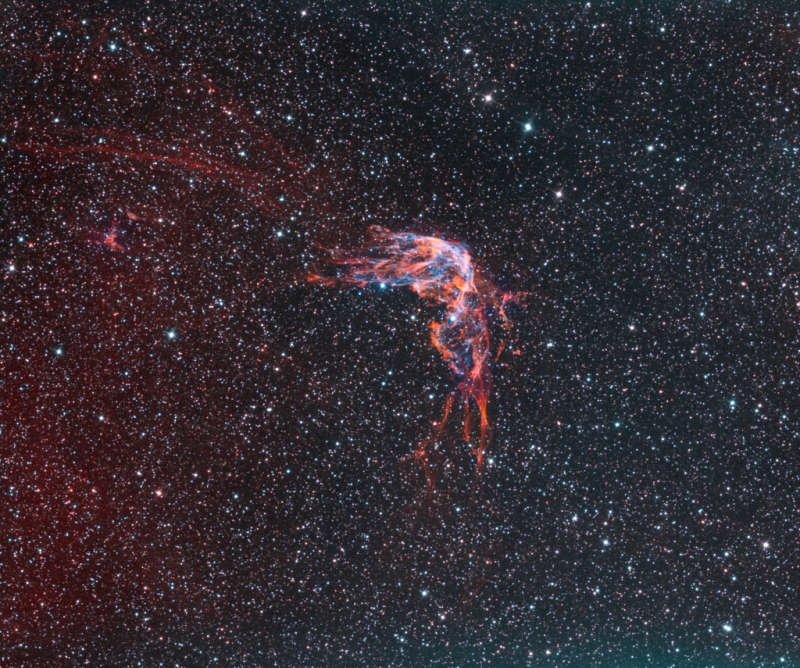Credit & Copyright: Martin Pugh
Explanation:
In 185 AD,
Chinese astronomers
recorded the appearance of a new star in the Nanmen asterism.
That part of the sky is
identified with Alpha and Beta Centauri on modern star charts.
The new star was visible for months and is thought to be the earliest
recorded supernova.
This deep image shows emission nebula RCW 86,
understood to be the remnant of that stellar explosion.
The narrowband data trace gas ionized by the still
expanding shock wave.
Space-based images
indicate an abundance of the element iron
and lack of a neutron star or pulsar
in the remnant,
suggesting that the original supernova was Type Ia.
Unlike the core collapse
supernova explosion of a massive star, a
Type Ia supernova
is a thermonuclear
detonation on a a white dwarf
star that accretes material from a companion in a binary star system.
Near the plane of our
Milky Way
galaxy and larger than a full moon on the sky this supernova remnant
is too faint to be seen by eye though.
RCW 86 is some 8,000 light-years distant and around 100 light-years across.
1999 2000 2001 2002 2003 2004 2005 2006 2007 2008 2009 2010 2011 2012 2013 2014 2015 2016 2017 2018 2019 2020 2021 2022 2023 2024 2025 |
Yanvar' Fevral' Mart Aprel' Mai Iyun' Iyul' Avgust Sentyabr' Oktyabr' Noyabr' Dekabr' |
NASA Web Site Statements, Warnings, and Disclaimers
NASA Official: Jay Norris. Specific rights apply.
A service of: LHEA at NASA / GSFC
& Michigan Tech. U.
|
Publikacii s klyuchevymi slovami:
supernova remnant - ostatok Sverhnovoi
Publikacii so slovami: supernova remnant - ostatok Sverhnovoi | |
Sm. takzhe:
Vse publikacii na tu zhe temu >> | |
